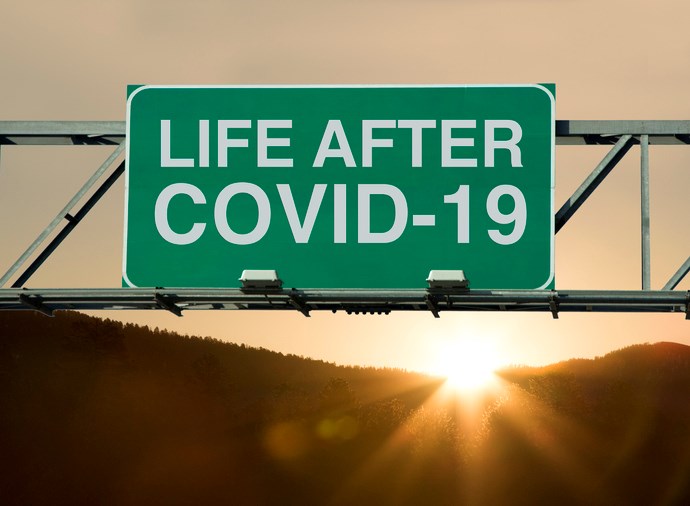My future granddaughter, Jenny (a woman can hope!) is visiting her grandparents here in the Resort Municipality of Squamish, where we live in our electric van, down by the 麻豆社国产River.
(She doesn’t know it, but my adorable grandchild is the result of her parents’ partying ways during the Roaring 2025s that followed the coronavirus pandemic years.)
She is heading out to meet-up with some local friends for this newly-revived thing called a buffet. I warn her against it, as I have heard of a new strain of a virus is spreading in Australia.
Not for the first time, she rolls her eyes at my blast-from-the-past pandemic stories.
She’s heard too many times about “the COVID days” and why her grandparents avoid large crowds and keep an eye on infectious diseases bubbling up around the world.
To her, COVID-19 is something long ago and far away.
And this is the same as it ever was.
When I was a kid, my grandfather’s penchant for storing years’ worth of canned food, toilet paper, and — for some unknown reason — broom handles was always explained away as: “He lived through the depression.”
My grandparents’ garden was huge and produced enough fresh vegetables to last them most of the year, once canned.
My grandfather’s alcoholism was whispered about as a result of the Second World War. I was to give him a wide berth.
To my young ears, it all sounded like excuses for the weird behaviour of old people.
This pandemic has made me think back to those stories and understand them in a whole new way.
I know this time has changed me and my family and likely yours too.
Plagues and global hardships aren’t new, just new to us, and as much as we like to think we are unique, we can pretty easily predict how this will all play out.
In tracks what has happened before and will likely happen again.
After 2024, when things start to be more normal, “if history is a guide, it seems likely that consumption will come back with a vengeance,” he writes.
Like during the Roaring 20s, there will be a period of increased risk-taking.
“People will relentlessly seek opportunities for social mixing on a larger scale in sporting events, concerts and political rallies.”
It will impact how we work, interact, and our economy, as every plague and crisis has. Christakis notes people used to spit in the streets, but the 1918 flu ended that. Perhaps handshakes will never return?
But regardless of the changes, humans will soon forget and move on to their generation’s crisis.
And eye-rolling about the old pandemic days will ensue.
Same as it ever was.





